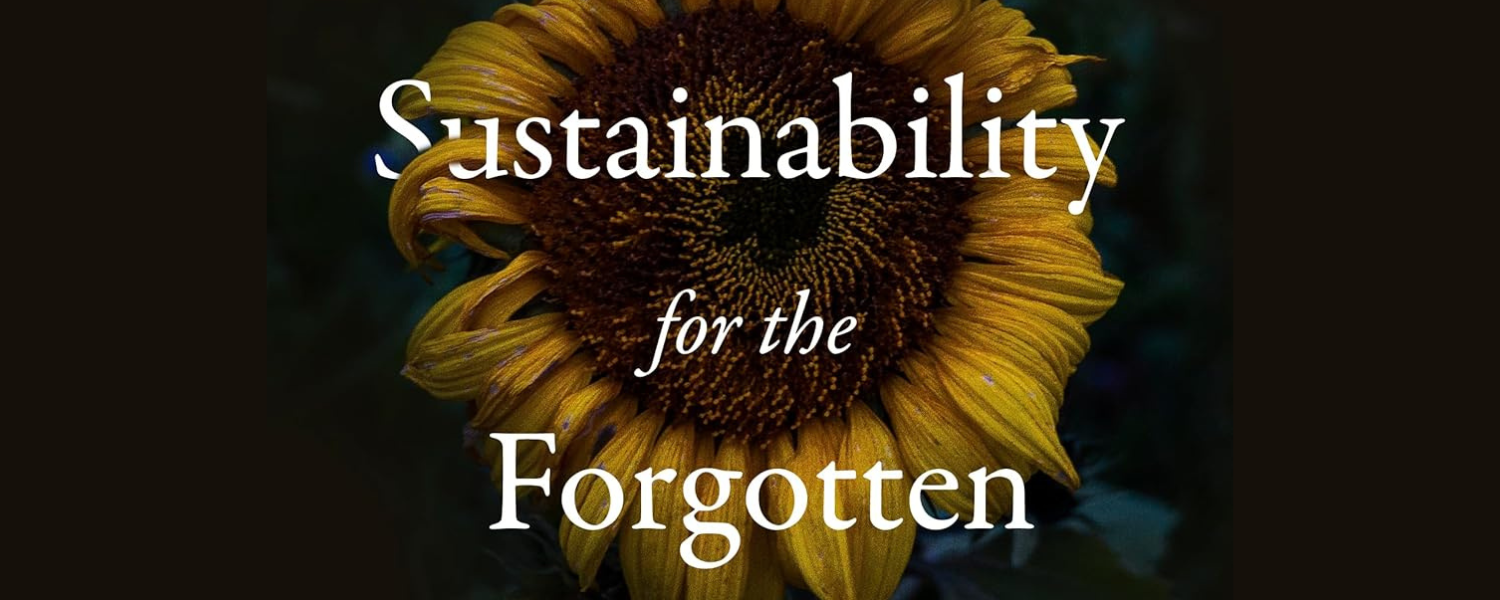Green Reads: Sustainability for the Forgotten
"When the right to access becomes only a right to purchase... and basic needs such as clean water and medical treatment become market-based commodities, 'the notion of sustainability becomes a blunt instrument used against the poor'."
-- Sustainability for the Forgotten by Gary E. Machlis
Sustainability for the Forgotten by Gary E. Machlis interrogates how the movement towards global sustainability considers, or more accurately, overlooks the world’s most vulnerable, and what it means to “reset goals, strategies, and tactics” to address long ignored injustices and achieve a more humane world. In his words, “suffering is at once a moral and socio-ecological condition.”
Sustainability for the Forgotten outlines the ways in which social conditions of the unseen, and, the preservation of the environment directly impact one another. Whether it is deforestation being used as a means of displacement, colonialization and the privatization of land, the exploitative use of hunger to drive forced labor, burning villages in western Sudan, failing infrastructure that leaves communities in Barbuda uninhabitable, or coffee plantation owners in El Salvador committed to “feeding his trees and starving his workers”, modern sustainability initiatives must ensure the “priority of the poor”.
As Machlis identifies those who have been, often intentionally and systematically, overlooked in the pursuit of a sustainable future, readers are encouraged to consider why and how sustainability must not only include, but center disaster victims, those considered stateless, the impoverished, the homeless, the oppressed, the disabled, the imprisoned and the formerly incarcerated.
“The creation and expansion of empathy for the forgotten, for all persons, for local landscapes, for earth, is a necessary element to the reform of sustainability education.”
A few goals and actions that center the forgotten
- Creating urban orchards with fruit bearing trees and turning vacant lots into community gardens
- Access to green spaces and walkable cities/areas
- Free public transportation
- Green jobs prison programs and rehabilitation
- Refocusing on and highlighting environmental research connected to the needs of the unseen
More recommended reading
- Racial Climates, Ecological Indifference : An Ecointersectional Analysis by Nancy Tuana
- Pollution is Colonialism by Max Liboiron
- A Livable Planet : Human Rights in the Global Economy by Madison Powers
- The Intersectional Environmentalist : How to Dismantle Systems of Oppression to Protect People + Planet by Leah Thomas
- Social Sustainability, Past and Future : Undoing Unintended Consequences for the Earth's Survival by Sander Van der Leeuw
- Environment Lib Guide by Linda Hall Library


